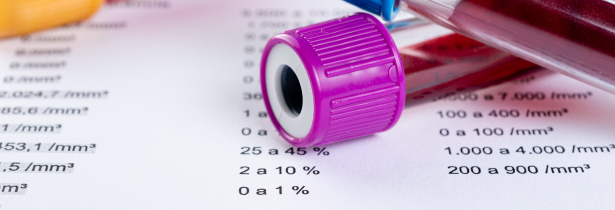
Immunological Examination:
These tests measure the antibodies that the immune system produces to fight infections caused by bacteria and viruses. These tests provide the doctor with important information about the functioning of the immune system and autoimmune diseases.
The following are some of the most common immunological tests:
This test is used to diagnose typhoid fever. It detects agglutinating antibodies against H and O antigens of typhoid fever.
This is one of the tests used to diagnose brucellosis, a bacterial infection caused by a group of bacteria called Brucella that can infect both humans and animals. It is usually transmitted to humans through the consumption of raw meat or unpasteurized milk.
C-reactive protein (CRP) is a protein produced by the liver in response to inflammation. In the presence of inflammation, the liver produces high levels of CRP to fight foreign microbes in the body. This makes CRP one of the inflammatory markers that are measured in the blood.
This test measures the concentration of antibodies against the toxic enzyme called streptolysin O, which is produced by Streptococcus pyogenes bacteria. Both ASO and anti-DNase B are among the most common antibodies produced by the immune system in response to Streptococcus pyogenes infection. Streptococcus pyogenes is one of the most common types of bacteria that cause a variety of infections.
This test is used to measure the level of rheumatoid factor in the blood. It is a type of antibody that attacks the body’s own tissues and causes rheumatoid arthritis.


